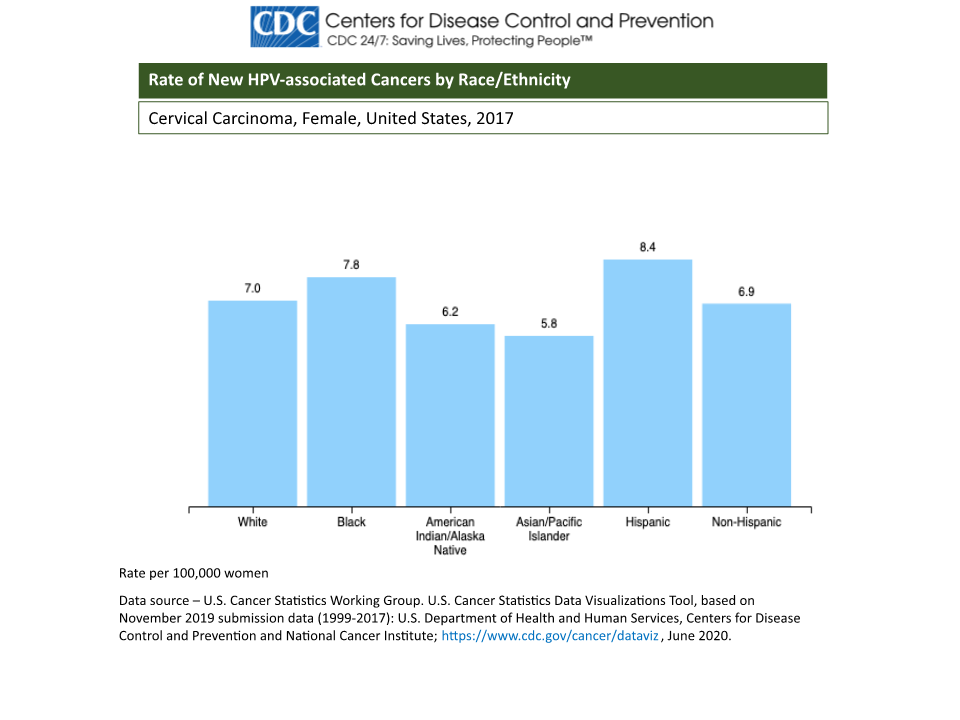Just over three years ago, my 54-year-old mom passed away after a valiant fight against endometrial cancer and leukemia. Prior to her diagnosis with endometrial cancer and subsequent hysterectomy, I don’t think I once thought that my reproductive organs could betray me.
That changed late last year following my scheduled pap smear. I was fairly religious about staying up-to-date on all things related to women’s health. I refused to let my uterus or anything else down there upend my life as my mom’s had.
So you can imagine how I felt when I received the call from my gynecologist’s office that I tested positive for HPV and, therefore, that abnormal cells had been detected in my results. It was overwhelmingly panic-inducing.
I vaguely listened as the nurse on the phone explained that I would need to get a colposcopy and maybe even a biopsy. I told her that I understood, scheduled my appointment and hung up the phone. Then, I burst into tears. I hadn’t really listened –– or rather, I stopped listening when she said biopsy. In my anxiety-riddled mind, biopsy meant only one thing: cancer.
I can’t quite remember whether I called my girlfriends or my brother first. But I do know I sobbed and mostly ignored them when they told me it would be okay. Instead, I did what I know to do best: I dug into Google results until I thought I knew everything I could possibly know about colposcopies and cervical biopsies.
Of course, all that did was make me even more anxious. What if the colposcopy did reveal precancerous or cancerous cells? Did that mean that I would never be a mom?
And what about the HPV? It didn’t help that I had received my sex ed in a Catholic high school. I hardly knew anyone that had HPV. Or so I thought. Soon friends, and friends of friends, revealed that they’d dealt with it too. A cousin in Germany, by way of her surgeon husband, also assured me I’d be fine.
It wasn’t until I marched myself back into the doctor’s office to plead for more information that I felt calmer.
HPV is incredibly common, so common, in fact, that the CDC states that almost every person who is sexually active will likely get HPV in their lifetime without the HPV vaccine. In 2018, the CDC estimated that there were 43 million people infected with HPV. And in most cases, the CDC says that HPV goes away on its own and doesn’t cause health problems.
The numbers on colposcopy aren’t as straightforward, but given conversations with friends, it seems that too was pretty common. Still, I was dreading the day of the procedure and even asked one of my friends to come with me.
At the doctor’s office, I laid down just like you do for a pap smear. Colposcopies are fairly straightforward, they use a vinegar solution and a microscope to see the cells in your cervix. If abnormal cells are found, doctors can take a small biopsy to send back to the lab. In my case, my doctor had me cough several times as she attempted to take a sample from my “cervix of steel.” (Yes, those were the exact words she used!) ‘
From start to finish, the procedure and the biopsy didn’t take longer than 20 minutes and was practically painless.
The results arrived exactly a week later. I, embarrassingly, responded the same way to the results call as I’d had to the make-your-appointment call. Except this time, it was of pure relief. The biopsy came back normal. My cervix didn’t betray me after all.
But writing this piece just a few weeks after those results, I’m struck by how little we hear from other women who have undergone this procedure. Like most things relating to our health, it seems that there’s a little bit of stigma surrounding talk of pap smears and abnormal results that could lead to cancer or even infertility. But there shouldn’t be. Pap smears are normal (or they damn should be). We’re doing each other a great disservice by not talking about them and how vitally important they are.
Last month was Cervical Cancer Awareness month. But that barely got a mention in the media because we were (rightly so) concerned with insurrection at the Capitol, an ongoing deadly pandemic and a million other things.
That needs to change, particularly for Black and Hispanic women. According to the CDC, more Black and Hispanic women get HPV-associated cancers than other races/ethnicities due to decreased access to pap screenings and follow-up treatment.
I’ve already urged my sister and aunt and anyone who will listen to get their pap smear. The pap is uncomfortable and can result in weeks of anxiety (as in my case), but it can also, quite literally, save your life.
By Nikki Rojas






👏🏼👏🏼👏🏼